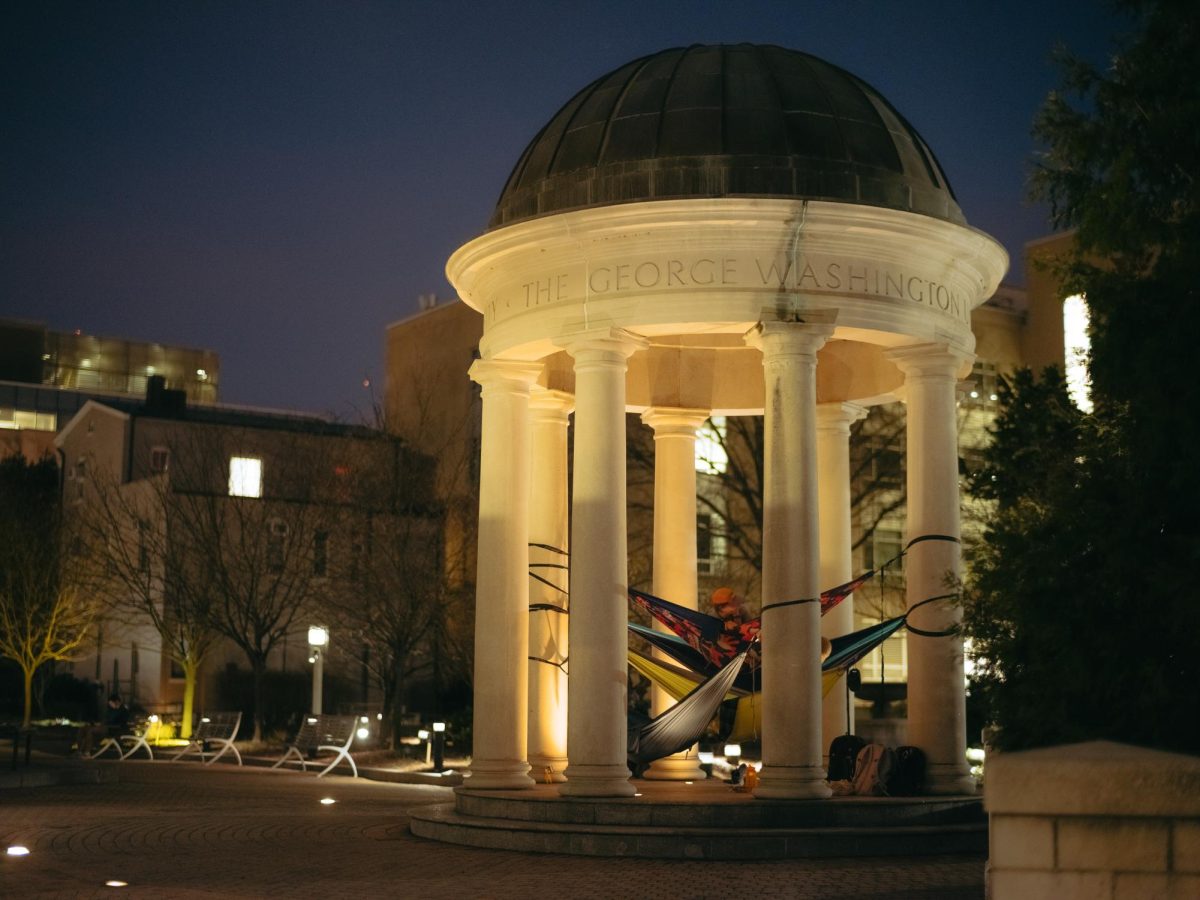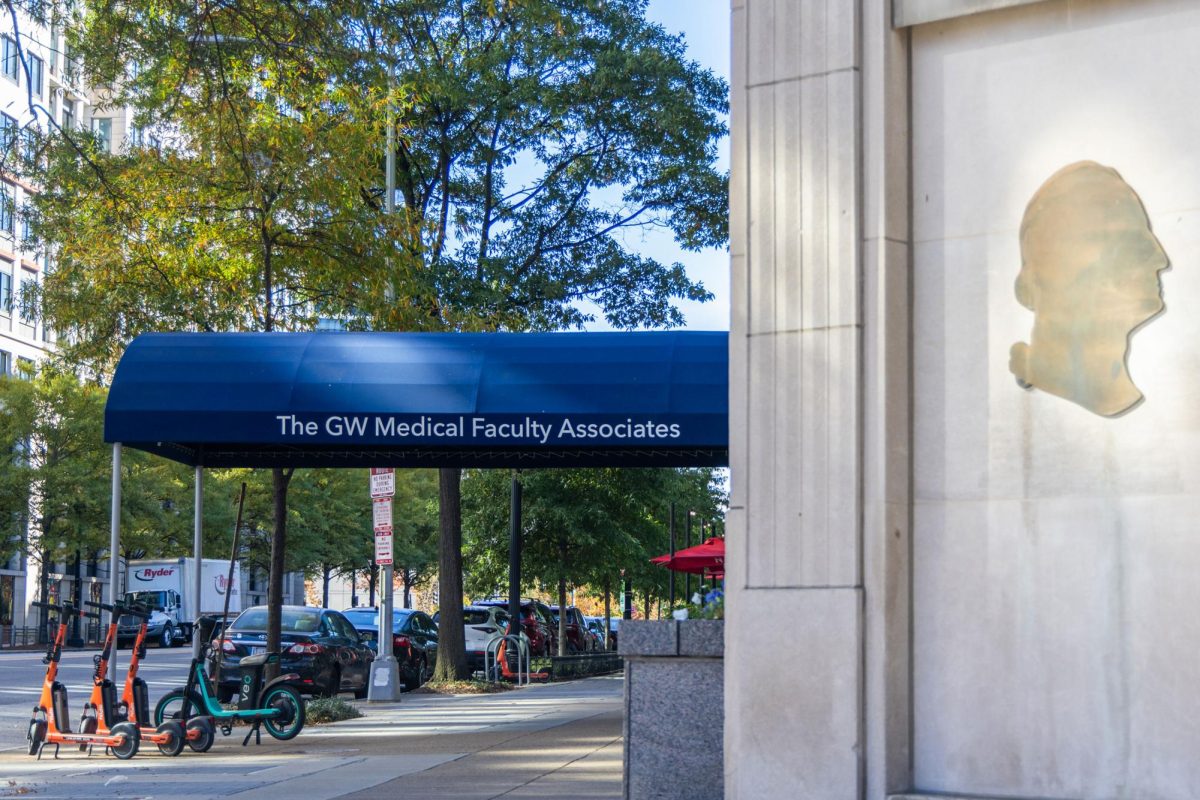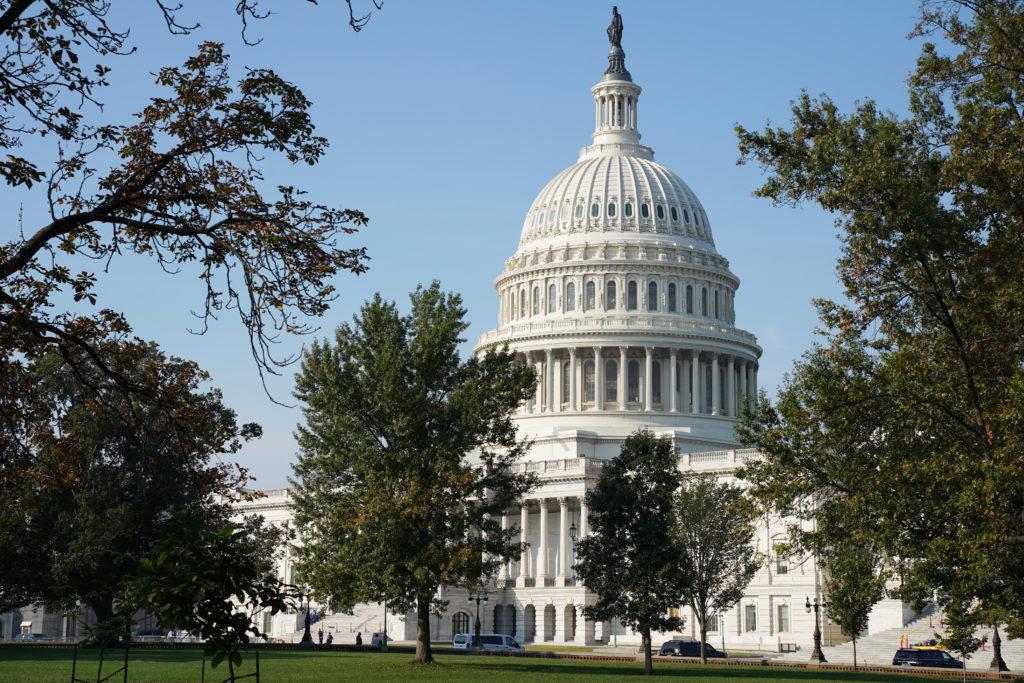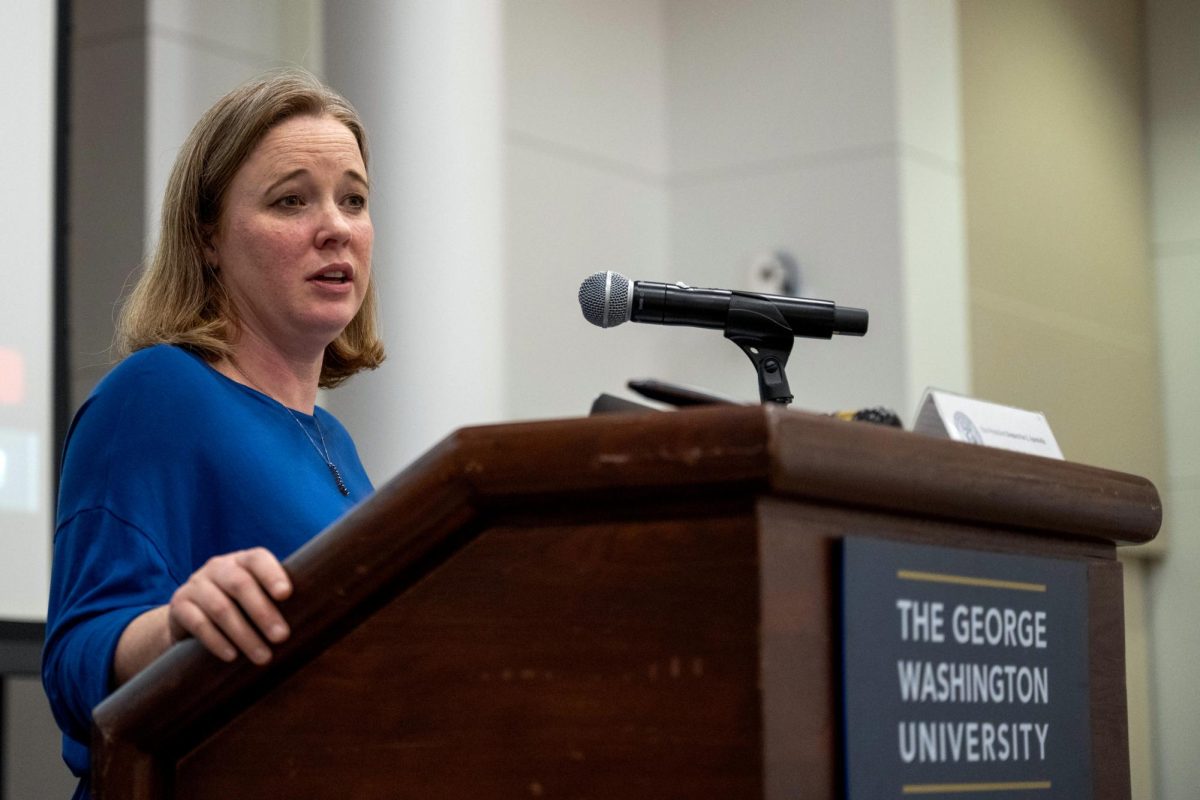Students are reporting that GW Police Department officers are now restricting the use of hammocks in Kogan Plaza.
The GW Free Expression website — which outlines the University’s policies and guidelines on free speech and expression — states that individuals occupying locations with “temporary living accommodations” like tents are prohibited expressive activities and in violation of existing University policies, like the Disruption of University Functions Policy and Sleeping in Public Areas of University Owned, Controlled or Leased Property Policy. The regulations allow GWPD officers to enforce these policies, according to the University’s Strengthening Our Community website.
The disruption of University functions policy and sleeping policy date back to at least July 2020, according to web archives. The Free Expression website states that the policies apply to banning tents, but the two policies do not explicitly prohibit tents or hammocks under their respective guidelines.
The website further states that temporary non-encampment structures may be approved on a “content-neutral basis.” For events on campus, the GW’s safety website and Special Events Task Force states that single and double use hammocks are permitted.
In April, pro-Palestinian demonstrators set up an encampment in University Yard for 13 days to demand officials disclose all investments and academic partnerships, drop all charges against pro-Palestinian student organizations and divest from companies supplying arms to Israel. Since then, the University has increased GWPD patrols around campus and added a 24/7 security presence at Kogan and U-Yard, according to the University’s Strengthening Our Community website.
Anika Gupta, a senior studying international business, said she has only noticed GWPD officers implementing the policies on hammocks this fall.
Gupta said a security guard in Kogan told her to take down her hammock an hour and a half after she set it up on Sept. 3. She said the guard told her the University had “informed” security to enforce the temporary structures policy in a meeting before the first day of classes.
“I was confused because I’ve always seen people using hammocks in Kogan on nice days, so I asked if this was a new policy because as a senior, I had never heard of it or seen it enforced,” Gupta said in a message. “He told me he didn’t know.”
Gupta said after the guard alerted her, she sat back down on the hammock to message her partner, who owns the hammock. She said two minutes later, three GWPD officers approached her and told her to take down the hammock or she would receive a citation.
“The officers then stood and waited until I began the process of taking the hammock down,” Gupta said in a message.
Gupta said after the interaction she felt “frustrated,” so she texted the Student Government Association President Ethan Fitzgerald and SGA Vice President Ethan Lynne. She said SGA leadership told her they were aware of the issue and were attempting to talk to administration about the situation.
Gupta said she also emailed the Office of Student Life after she didn’t find any explicit bans on hammocks after researching the Student Code of Conduct, Disruption of University Functions Policy and Sleeping in Public Areas of University Owned, Controlled or Leased Property Policy. She said the office told her in an email that they were working with GWPD to “sort out” the issue.
“No one told me if I would be able to use my hammock on campus in the future,” Gupta said in a message.
“Gw.propaganda,” a satirical Instagram account that posts memes about student life, campus culture and administration said in a post Tuesday that the University banned all temporary structures. “Joe.gwyou,” an Instagram parody account of Joe Goldberg from the Netflix show “You” posted a story Tuesday of GWPD officers reportedly telling students to take down their hammocks in Kogan.











